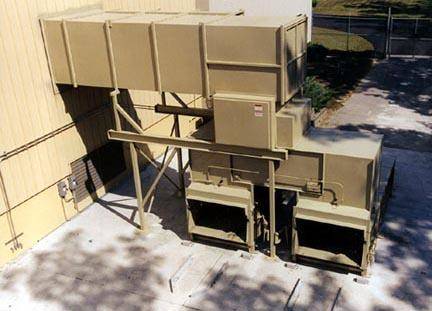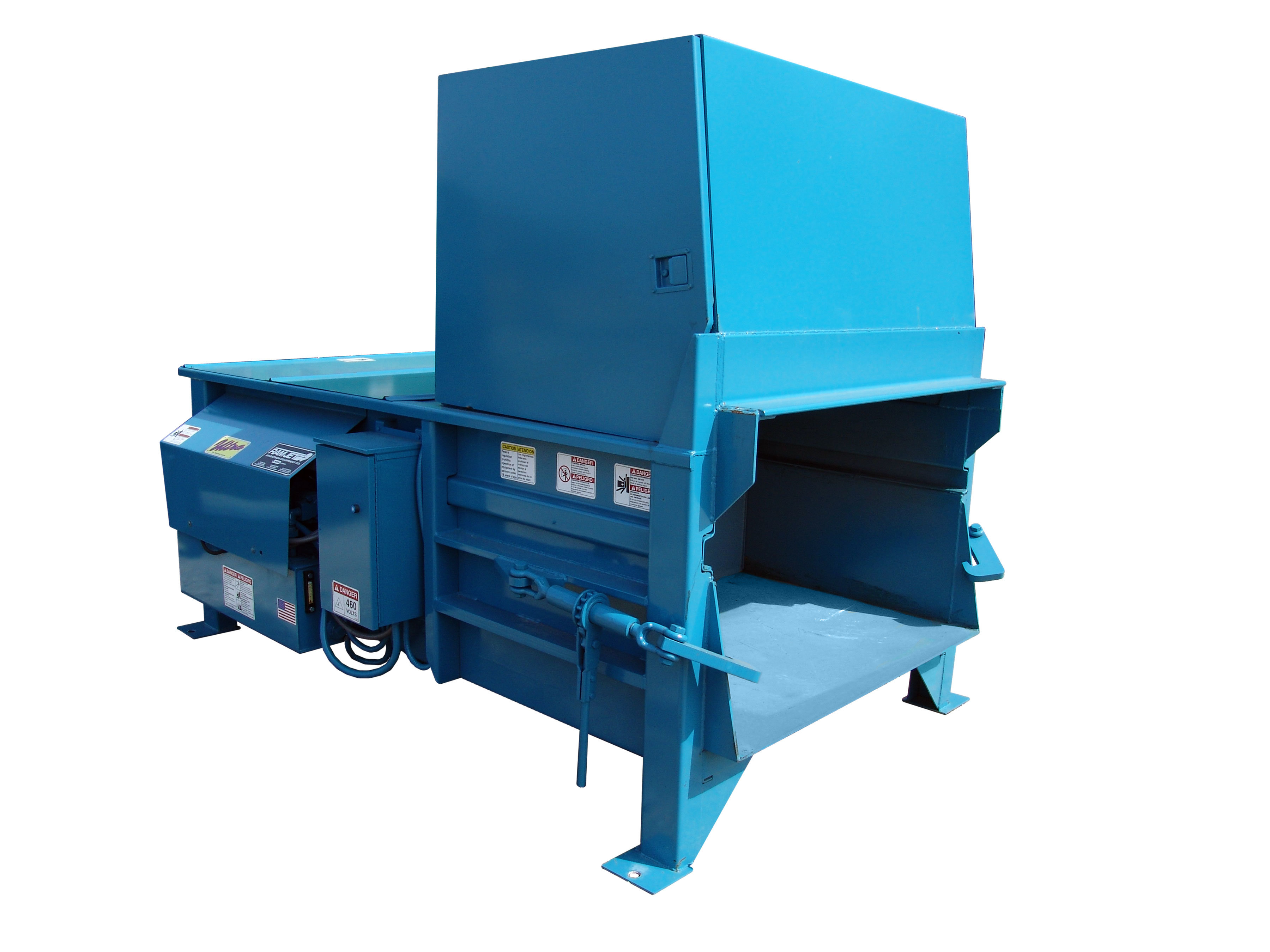A step-by-step guide to maintaining Commercial trash compaction equipment
Wiki Article
Just How Waste Equipment Boosts Effectiveness in Garbage Disposal Workflow
Waste Equipment plays an essential function in boosting the performance of garbage compactor procedures. By using sophisticated sensing units and automation, these systems enhance compaction cycles and keep track of load capabilities effectively. This combination not just conserves energy but likewise minimizes pickup regularity and associated expenses. As companies significantly embrace these technologies, the implications for functional sustainability and administration techniques come to be clearer. What various other advantages might emerge from these developments in waste Equipment?The Duty of Advanced Sensors in Compaction Performance
Advanced sensors play a crucial duty in boosting the effectiveness of garbage compactors. These sophisticated devices keep an eye on numerous parameters, including lots capability, moisture degrees, and compaction cycles, enabling for real-time modifications. By properly evaluating the amount of waste, sensing units allow compactors to optimize their procedure, making sure that power usage is minimized while optimizing the volume of waste processed.Additionally, progressed sensing units add to anticipating upkeep by determining potential problems prior to they lead to Equipment failure. This positive approach not just lowers downtime yet additionally expands the lifespan of the compactor. Additionally, information gathered from these sensors can be evaluated to enhance functional methods, resulting in enhanced waste monitoring practices. Generally, the combination of advanced sensing units in garbage compactor considerably boosts their performance and operational performance, converting into cost financial savings and an extra sustainable strategy to garbage disposal.
Durability and Layout: Products That Issue
The longevity and layout of garbage compactor pivot substantially on the products utilized in their building. Premium steel is often the main option, providing strength and resistance to wear and tear. This durable product withstands the tremendous pressure exerted during compaction, ensuring longevity and reliability. In addition, elements such as hydraulic systems are commonly crafted from corrosion-resistant alloys to avoid destruction with time, improving operational efficiency.Design also plays a critical function in functionality; critical reinforcements and ergonomic shapes can significantly influence performance. Manufacturers usually prioritize modular layouts, permitting much easier upkeep and repair work. Improvements in finishing innovations, such as powder finishing, improve resistance to environmental factors, consisting of moisture and chemicals. Eventually, the mindful selection of products not only boosts the architectural honesty of trash compactors yet likewise contributes to their total performance and efficiency in waste monitoring operations.
Automation and Smart Technology in Waste Equipment

Automated compactors can enhance compaction cycles based on the volume of waste, making best use of area and enhancing operational performance. Combination with mobile applications enables individuals to check and manage compactors from remote locations, enhancing convenience and responsiveness. By taking on these technologies, waste monitoring firms can not only enhance their functional process yet also contribute find out here now to more sustainable methods by decreasing waste and maximizing source use. In general, automation and clever innovation stand for a significant leap ahead in the efficiency of garbage compactor operations.
Information Analytics for Maximizing Waste Administration
Utilizing information analytics uses waste monitoring companies an effective tool for boosting and maximizing operations performance. By collecting and assessing data from various resources, such as compactor performance metrics and waste generation patterns, firms can gain important understandings. These insights enable them to make educated choices regarding collection schedules, compactor usage, and upkeep needs.Anticipating analytics can forecast waste generation fads, permitting business to designate sources extra efficiently and avoid possible overflows or underutilizations of Equipment. Real-time monitoring through information analytics additionally improves the capacity to respond swiftly to operational difficulties, lowering downtime and enhancing solution dependability.
In addition, incorporating data analytics with existing waste monitoring systems promotes a society of continuous enhancement. By tracking and determining ineffectiveness performance with time, companies can fine-tune their processes and adopt finest techniques, eventually causing an extra sustainable and reliable waste monitoring strategy.
Expense Cost Savings Via Enhanced Functional Efficiency
By enhancing procedures and reducing waste, companies over at this website can attain considerable expense savings in their waste administration procedures. Boosted operational effectiveness in trash compactors minimizes the regularity of pick-ups, leading to lower transportation expenses. Moreover, progressed waste Equipment permits for maximum compaction, maximizing container capacity and lessening the need for added containers.This enhanced effectiveness not only lowers waste disposal fees however also extends the lifespan of Equipment, minimizing upkeep costs. Automated surveillance systems offer real-time information, enabling for aggressive adjustments in waste handling, which can furthermore improve efficiency and lessen unexpected expenditures.
In addition, durable training programs for staff on Equipment usage can cause enhanced operational techniques, additionally driving down costs. Eventually, the assimilation of efficient waste Equipment fosters a cost-efficient waste monitoring approach that profits firms monetarily while guaranteeing smoother operations.
Environmental Impact: A Sustainable Technique to Waste Administration

Additionally, carrying out reusing efforts together with compaction procedures permits business to draw away materials from landfills, advertising circular economic situation principles. Services that take on environmentally pleasant practices not only enhance their business obligation yet likewise charm to progressively eco-conscious customers. By prioritizing sustainability in waste management, organizations can attain a double benefit: boosting functional efficiency while proactively contributing to ecological preservation. This balanced approach settings companies as leaders in sustainable methods, promoting a healthier world for future generations.
Regularly Asked Questions
How Commonly Should Waste Equipment Be Maintained for Optimal Performance?
The frequency of maintenance for waste Equipment typically relies on usage and manufacturer referrals - Industrial waste compaction equipment. Usually, evaluations should occur quarterly, with thorough servicing yearly to guarantee peak efficiency and stop potential break downs or inefficienciesWhat Kinds Of Waste Can Be Processed in Trash Compactors?
Garbage disposal can refine different kinds of waste, including cardboard, paper, plastics, and non-hazardous food waste. Individuals should prevent condensing harmful materials, steels, and liquids to assure secure and reliable operation.Are There Security Attributes in Modern Garbage Compactors?
Modern garbage compactors usually include safety and security functions such as automated shut-off systems, emergency quit buttons, and sensor systems (Industrial waste compaction equipment). These improvements are developed to safeguard customers from prospective hazards during operation, advertising a more secure working environmentExactly How Does Waste Equipment Influence Labor Demands?
The impact of waste Equipment on labor demands is significant; it frequently reduces the need for manual labor, improving processes and improving performance. As a result, fewer employees are needed, enabling companies to assign sources much more effectively.What Is the Ordinary Life Expectancy of a Garbage Compactor?
The average life expectancy of a garbage disposal commonly ranges between 10 to 15 years, depending upon usage, maintenance, and ecological aspects. Normal maintenance can prolong this life expectancy, ensuring excellent performance and dependability throughout its functional years.By taking on these modern technologies, waste management companies can not just improve their operational operations but additionally contribute to more lasting practices by lessening waste and optimizing resource use. By minimizing and streamlining procedures waste, firms can achieve substantial expense savings in their waste administration procedures. Lasting waste monitoring strategies, especially in trash compactor operations, add considerably to reducing garbage dump waste and decreasing carbon footprints. Modern waste Equipment is made to optimize compaction, thereby decreasing the volume of waste needing disposal. Garbage compactors can refine various types of waste, including cardboard, paper, plastics, and non-hazardous food waste.
Report this wiki page